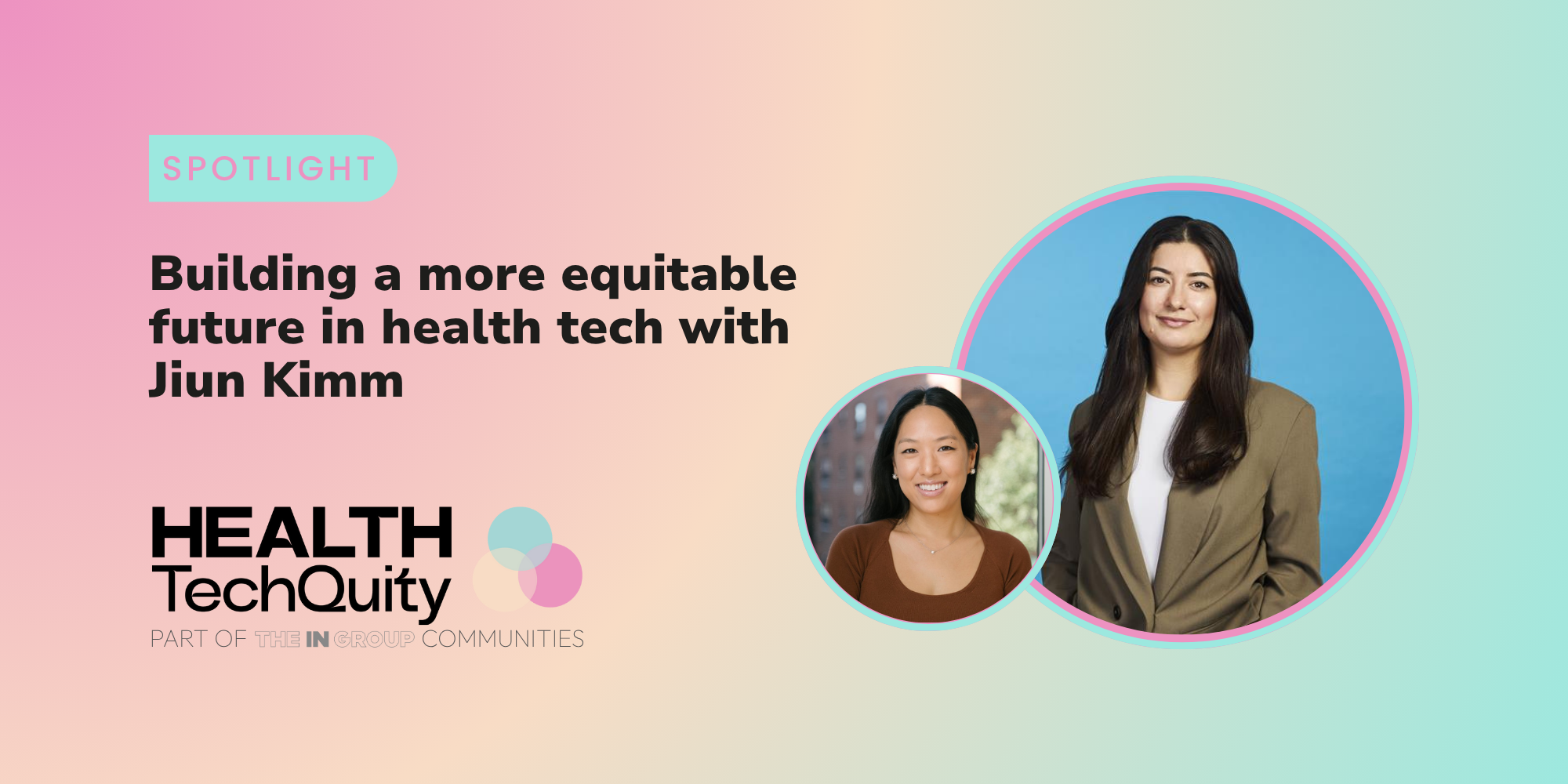The HealthTechQuity Spotlight series highlights leaders who are driving innovation while advancing equity in healthcare. In this edition, we feature Jiun Kimm, whose personal journey and professional mission are inseparable from the work she does in health tech.
Born in Oklahoma to parents who immigrated from South Korea and raised in rural Tennessee, Jiun Kimm grew up in a largely white community where she was one of the few Asian Americans. Facing racism in school sparked her passion for educational equity, leading her to teach for America and eventually to a career focused on DEI leadership. She describes her mission simply: “Wherever I go, wherever I am, I want to build a more equitable space than the one I entered.”
Transitioning from the social sector into corporate environments reshaped her approach. Early on, she believed systemic change required tearing everything down to rebuild. Now, she works strategically, reducing inequities one policy, process, or employee group at a time. Her move into health tech came through venture work, where she met founders whose personal stories fuelled their innovations. Seeing healthcare as a fundamental social good with deep disparities, she joined a mental health start-up before moving to Flatiron Health, applying her equity expertise to cancer research.
Though not patient-facing, she feels her work directly supports those who are: “Even if I’m not the one sitting with patients, I know my work enables those who are. That makes it easy to show up every day.”
Her leadership philosophy centres on decisiveness. One lesson from a former manager resonates most: trust your judgment, make the call, and stand by it. Particularly in inclusion work, she notes, “there’s rarely a perfect solution, you move with integrity and adjust along the way.”
Jiun identifies the corporatisation of healthcare as the industry’s biggest challenge, cautioning that shareholder-driven priorities can leave patients secondary. Still, she sees hope when companies remain grounded in community needs, give clinical experts real influence, and operate with accountability. She is inspired by organisations addressing inequities, from Whisper Health in Sub-Saharan Africa providing sexual healthcare for young women, to U.S innovators improving maternal and postpartum care.
Looking ahead, Jiun remains cautiously optimistic. Political resistance can strengthen movements rather than silence them, and she hopes health equity will continue to be data-driven, well-funded, and sustained. She leaves the next leaders in this series with a question that will shape the future of healthcare innovation: “How can we best leverage AI to tackle disparities in healthcare?”

